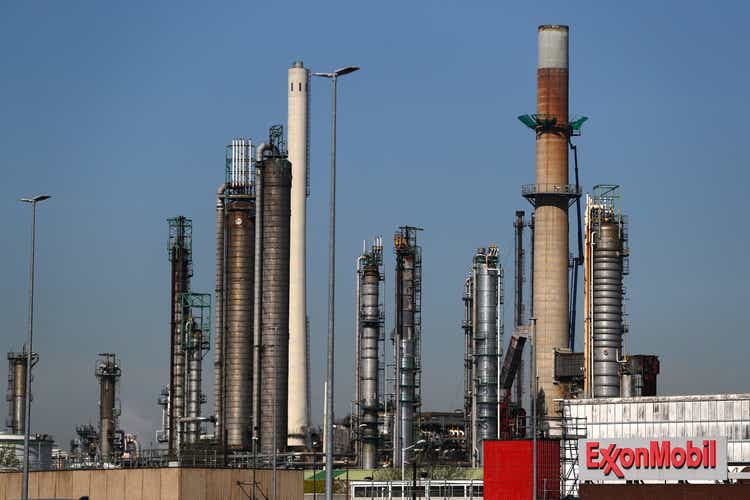Exxon Mobil: Leading the Industry Charge

Exxon Mobil (NYSE:XOM) has taken the helm in the resistance against proposed plans to cap the production of plastics, setting the stage for a fierce battle within the industry. With more than 4,000 delegates and observers gearing up to convene in Ottawa for United Nations talks, the discussions are poised to address the potential implementation of a plastics treaty that could combat plastic pollution over the next two decades.
The Heart of the Debate
“The issue is pollution, The issue is not plastics,” emphasized Exxon’s head of product solutions, Karen McKee, in a statement to the Financial Times. McKee further cautioned that exploring alternatives to plastic packaging could inadvertently lead to a surge in emissions, sparking a contentious dialogue within the sector.
On the opposing end, John Duncan, co-head of the Business Coalition for a Global Plastics Treaty, challenged the industry’s perspective by highlighting the problematic nature of viewing plastic as a lucrative opportunity for the oil and gas sector. This clash of ideologies underscores the complexities surrounding the future of plastic production and waste management.
Navigating Stalled Negotiations
The deadlock in negotiations predominantly revolves around diverging viewpoints on the management of the staggering 400 million tons of annual plastic waste. Environmental advocates are advocating for a 75% reduction in plastic production from 2019 levels by the year 2040, citing the inadequacy of recycling efforts in curbing plastic pollution, with only a fraction of materials being effectively recycled.
Conversely, countries like Saudi Arabia and China, prominent players in the petrochemical industry, alongside U.S.-led trade groups such as the International Council of Chemical Associations, argue that imposing production caps could trigger elevated consumer prices and pose significant energy challenges in the quest for viable plastic alternatives.
A Watershed Moment in Global Diplomacy
If a consensus on the treaty is reached, it could herald one of the most pivotal global agreements concerning environmental preservation and emissions control since the landmark 2015 Paris Agreement, marking a significant milestone in the collective efforts to mitigate the adverse impacts of plastic pollution on the planet.
ETFs tracking the performance of the energy sector, including XLE, XOP, VDE, IEO, PXE, IYE, and CRAK, are poised to be influenced by the outcomes of these high-stakes deliberations within the industry.